Dear readers, With the launch of e-newsletter CUHK in Focus, CUHKUPDates has retired and this site will no longer be updated. To stay abreast of the University’s latest news, please go to https://focus.cuhk.edu.hk. Thank you.
Diva on a Crescendo
Alumna and operatic soprano Louise Kwong moves from lead role to lead role
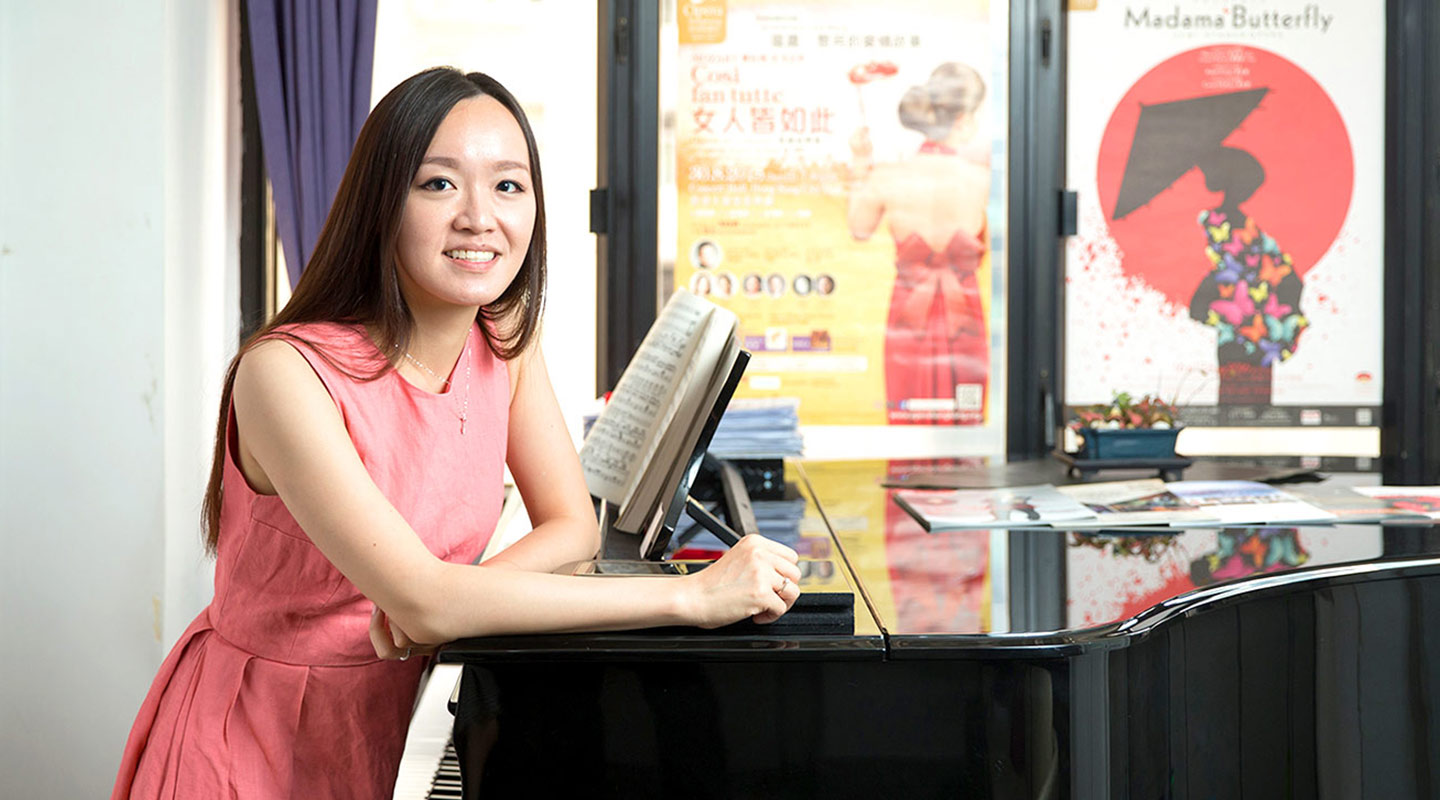
Born and raised in Hong Kong, soprano Louise Kwong has made a name for herself as an opera singer whose international performances have taken her to different parts of Europe. The interview for this article took place in her music studio at Fortress Hill. With her long hair let loose and a charming smile, the 29-year-old was dressed in pink and came across more like the girl next door than someone who has sung various lead roles including Liu in Turandot, Xiao Hong in Heart of Coral, and Cio-Cio-San in Madama Butterfly.
A natural-born songstress, Louise joined the Hong Kong Children’s Choir at the age of nine. But she only began taking formal singing lessons after winning the first prize in solo singing in an interschool singing competition. She eventually went on to study music at CUHK. All thanks to the foundation-laying efforts during her university education, she is fluent in German and Italian, the two most common languages that make up the operatic canon. ‘My teachers at CUHK always stressed that, as opera singers, we must put equal emphasis on both singing skills and the mastery of semantics and syntax in the lyrics. I probably spent more time on foreign languages as minor subjects and background research on the songs than I did on vocal practice,’ Louise recalled.
After graduating from CUHK, she headed off to Europe to further her studies. In addition to a postgraduate diploma from the Royal Academy of Music, and two master’s degrees, one from the Dutch National Opera Academy and one from the Conservatory of Amsterdam, she won the 2nd prize, Audience prize and Best Soprano prize in the 18th International Singing Competition ‘Ferruccio Tagliavini’ in Austria.
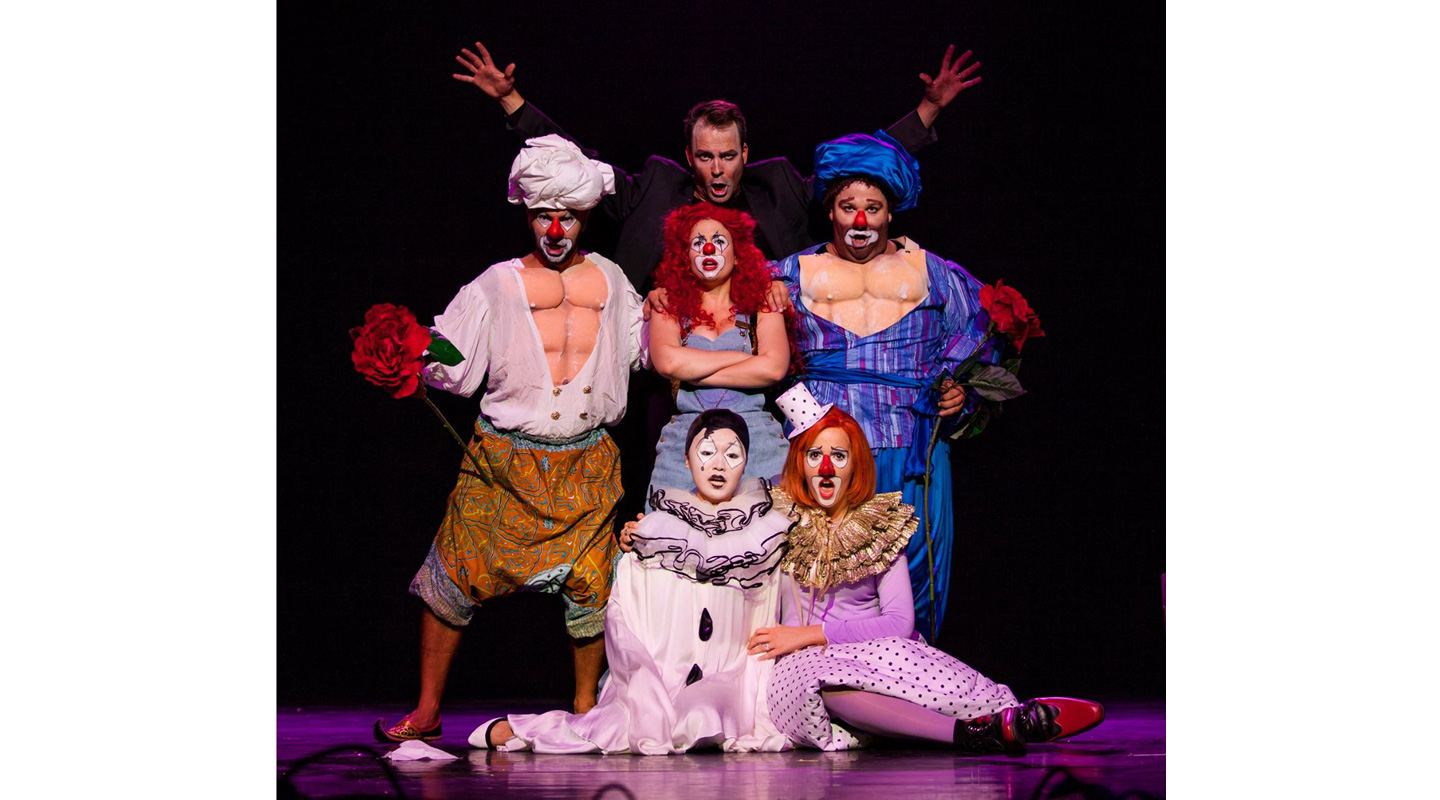
Behind the accolades and the trophies, has she ever felt disadvantaged by her Asian background?
‘I wouldn’t call this “disadvantaged”. Yes, I’ve been rejected because of my pronunciation or the way I look. But that was only to be expected. Imagine someone coming from Europe auditioning for a role in a Cantonese opera performance. You would probably query if they would look the part or if their Cantonese is up to par,’ she said.
After six to seven peripatetic years of studying abroad, she returned to Hong Kong in 2014 and soon became one of the most sought-after singers in her field. The various starring roles she has since had include Santuzza in Cavalleria Rusticana (Rustic Chivalry), Fiordiligi in Così fan tutte (Women Are Like That), and Kang Tongbi, daughter of Kang Youwei, in Datong (Great Unity).
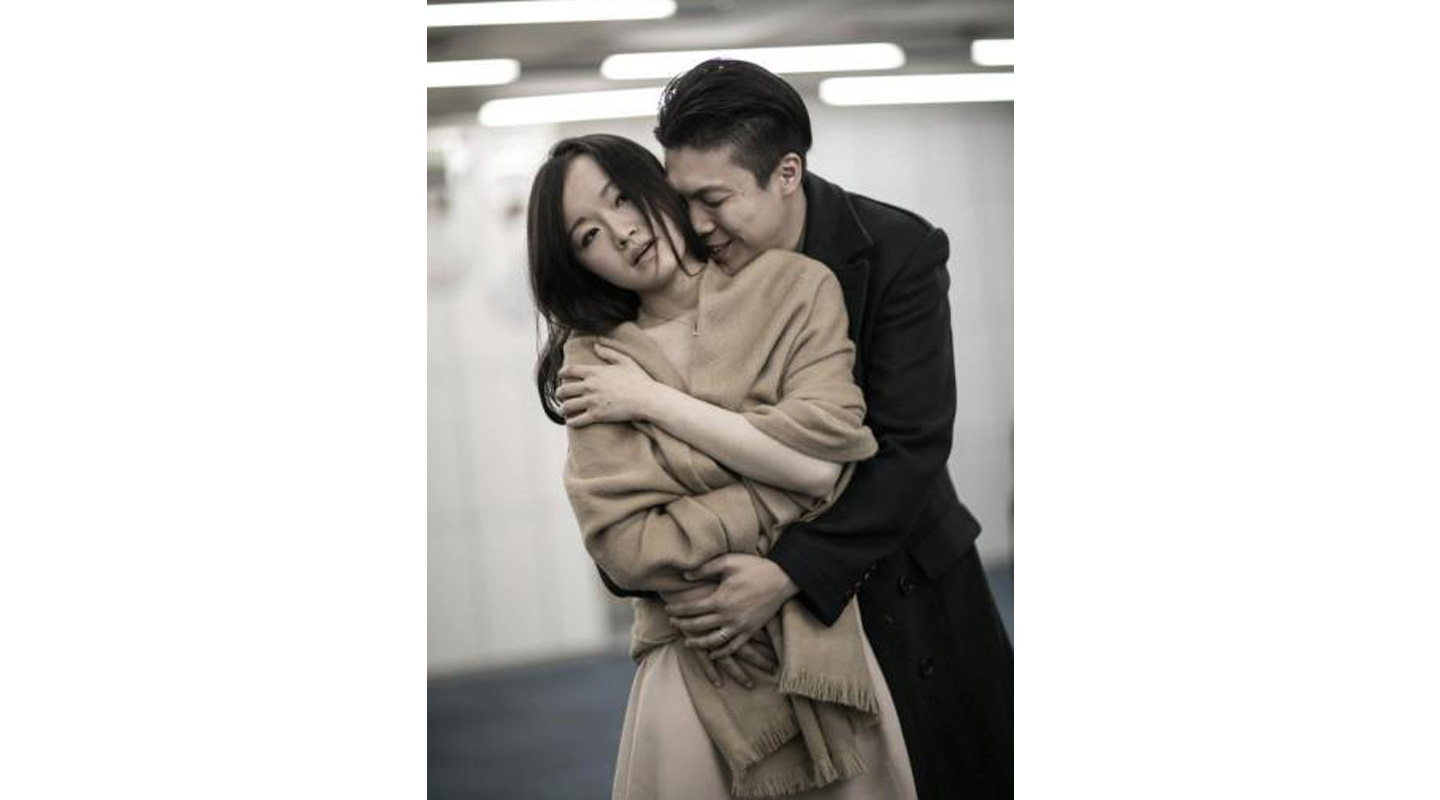
What introduced her to the local opera aficionados, however, was perhaps her title role in Heart of Coral, which also marked her first foray into opera singing in Chinese.
Is it easier to sing in Chinese than in a foreign language?
‘No, it’s actually more stressful. You’ll get caught out by the audience even if you sing just one character wrong or if you falter slightly. Most Italian operas were written over a century ago. You can easily find different versions of virtuoso performances on YouTube but the same cannot be said of opera singing in Chinese. You can only try and work out on your own—word by word, the best way to go about it.’
This August, she sang the title role of Cio-Cio-San in Madama Butterfly, a role craved most by Asian female opera singers. ‘It’s the first time I’ve tried my hand at this role. But there were only 10 days for rehearsal and it’s the longest and most challenging singing part I’d ever attempted. That’s why the experience was exceptionally rewarding,’ Louise remarked.
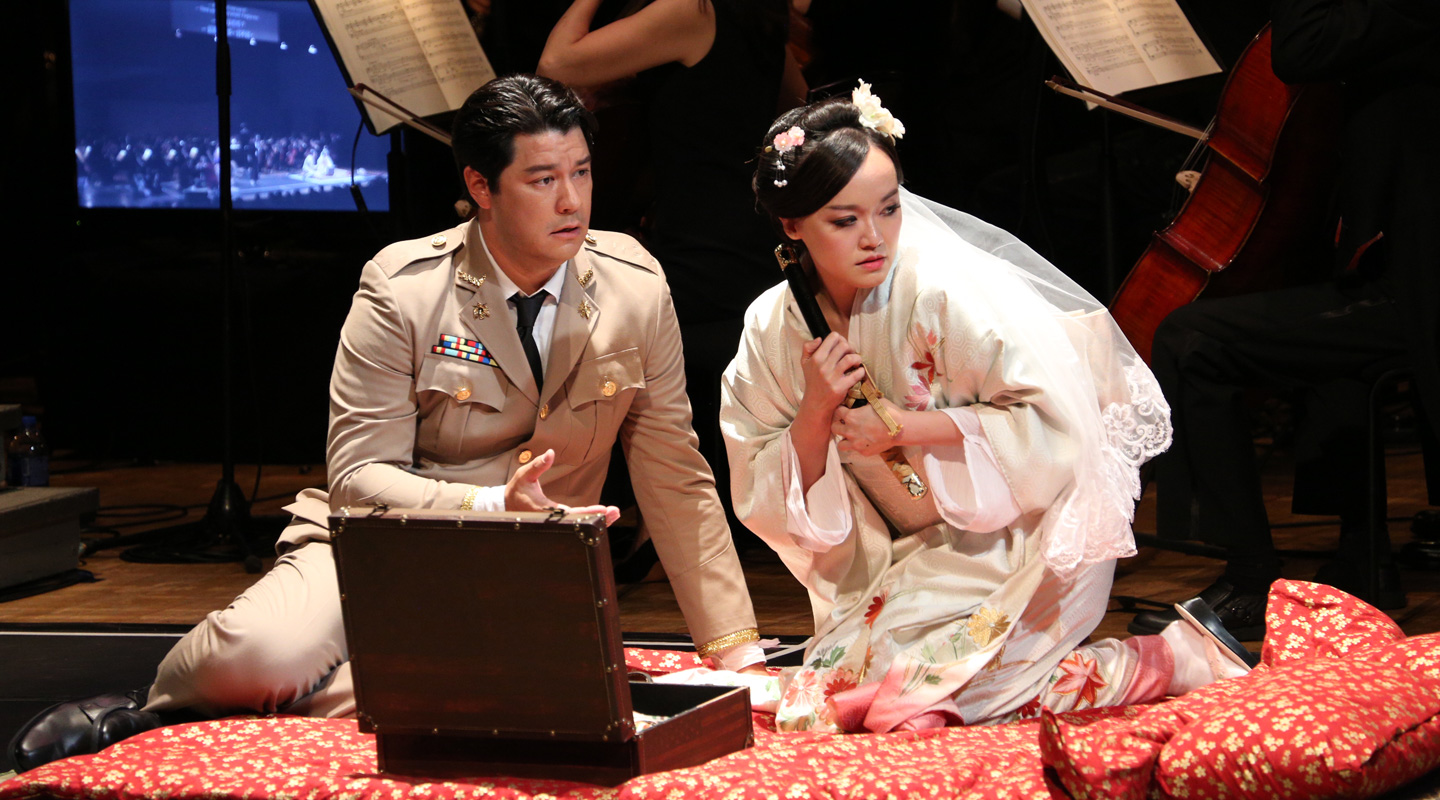
Apart from performances, she also gives private singing lessons. She makes no bones about the fact that the private lessons accounted for over half of her income: ‘Private music tutors in Hong Kong make more money than virtuosos who have released albums in Europe. But Hong Kong parents want all sorts of certificates and diplomas for their kids. Money is not a problem. Passing exams is all that matters.’
What is the age of the youngest student she has taught?
‘Just three, not long after the kid learned to say her first words. The idea was to get a diploma in preparation for the primary one admission interview,’ she responded in a resigned tone.
According to Louise, to deliver one’s voice to the last row of seats in an opera house without using a microphone calls for a robust vocal technique. ‘Unlike musical instruments, which can be replaced, we have only one vocal cord. To protect it and to make the best of it, we must not damage our voice through overexertion,’ she added.
To demonstrate, she sang on the spot O mio babbino caro (Oh My Beloved Father), an aria from Puccini’s Gianni Schicchi. Despite her petite stature, her mellifluous soprano voice, without being overpowering, instantly spiralled into every corner of the studio. As the young girl in the opera, for the sake of love, her subtle pleading with her father is so powerful that it leaves the interviewer profoundly touched. In fact, in Louise's previous roles as Liu, who remains ever loyal to her master, as Xiao Hong, who fights against the odds in turbulent times, and as Cio-Cio-San, a gentle but desperate soul, she was also able to impart to her audience, in the same vicarious manner, the joys and sorrows of the characters.
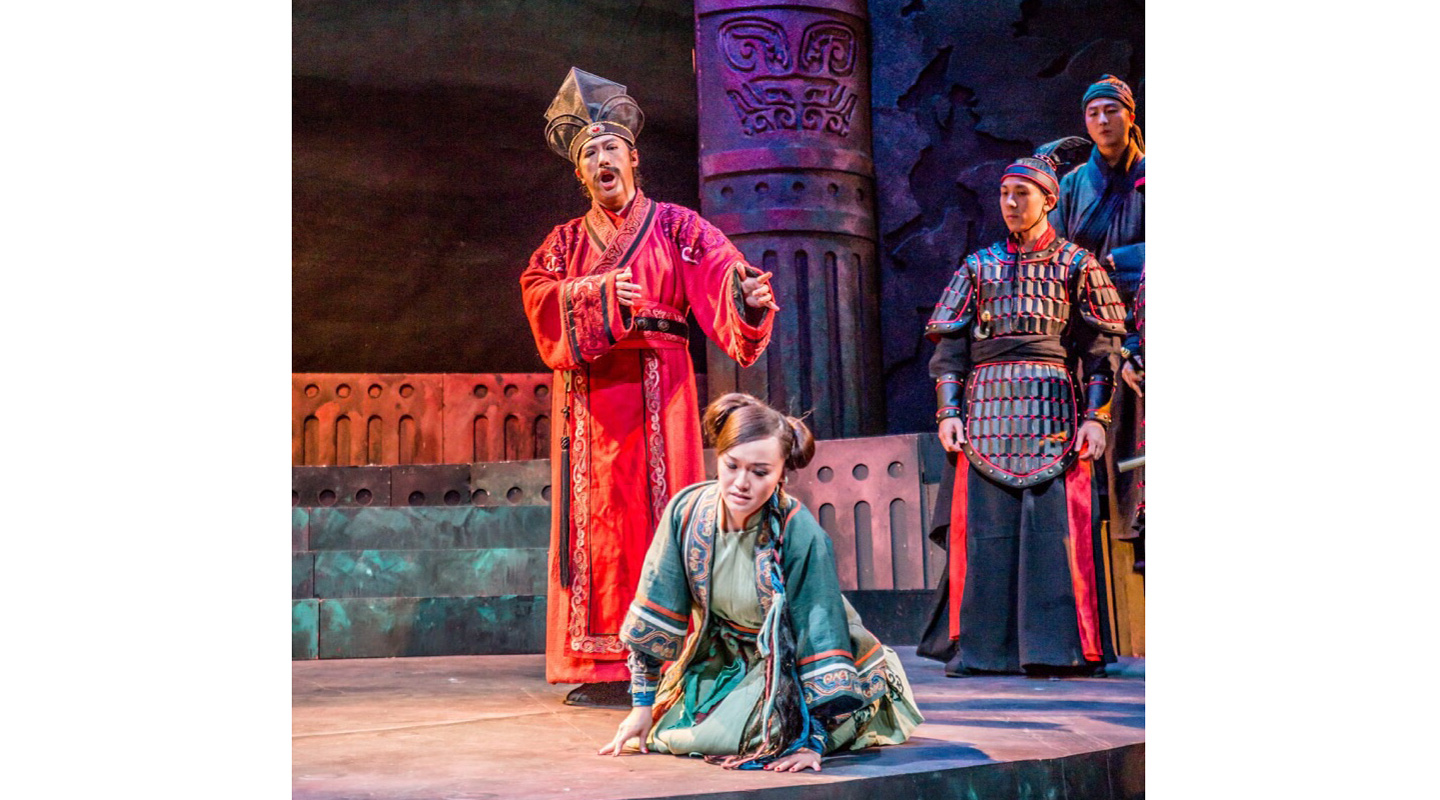
To prepare herself for the tough road ahead in her career, Louise has made it her goal to be a world-class opera singer by the age of 30. ‘As a female singer, if you want to build an international career, you must seize every chance you get before the age of 30. After all, who’s in the best position to get the attention of the directors and managers? Young singers at the top of their game, of course. Now that there’s just one year to go in my case, I will do my best to maximize my performance opportunities and participate in as many competitions as possible so as to let more people hear my voice,’ she said.
Reported by Christine N., ISO
This article was originally published on CUHK Homepage in Oct 2016.